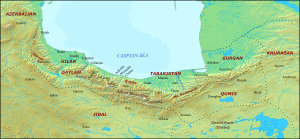User talk:Tahmid/Archives/2024/05
| This is an archive of past discussions about User:Tahmid. Do not edit the contents of this page. If you wish to start a new discussion or revive an old one, please do so on the current talk page. |
Administrators' newsletter – May 2024
News and updates for administrators from the past month (April 2024).
- Phase I of the 2024 requests for adminship review has concluded. Several proposals have passed outright and will proceed to implementation, including creating a discussion-only period (3b) and administrator elections (13) on a trial basis. Other successful proposals, such as creating a reminder of civility norms (2), will undergo further refinement in Phase II. Proposals passed on a trial basis will be discussed in Phase II, after their trials conclude. Further details on specific proposals can be found in the full report.
- Partial action blocks are now in effect on the English Wikipedia. This means that administrators have the ability to restrict users from certain actions, including uploading files, moving pages and files, creating new pages, and sending thanks. T280531
- The arbitration case Conflict of interest management has been closed.
- This may be a good time to reach out to potential nominees to ask if they would consider an RfA.
- A New Pages Patrol backlog drive is happening in May 2024 to reduce the number of unreviewed articles in the new pages feed. Currently, there is a backlog of over 15,000 articles awaiting review. Sign up here to participate!
- Voting for the Universal Code of Conduct Coordinating Committee (U4C) election is open until 9 May 2024. Read the voting page on Meta-Wiki and cast your vote here!
Wikipedia translation of the week: 2024-19
| The winner this Translation of the week is
Please be bold and help translate this article! Heinrich Bünting (1545 – 1606) was a Protestant pastor and theologian. He is best known for his book of woodcut maps titled Itinerarium Sacrae Scripturae (Travel book through Holy Scripture) first published in 1581. (Please update the interwiki links on Wikidata of your language version of the article after each week's translation is finished so that all languages are linked to each other.)
|
Wikipedia translation of the week: 2024-20
| The winner this Translation of the week is
Please be bold and help translate this article!  Ruyan (Persian: رویان), later known as Rustamdar (رستمدار), was the name of a mountainous district that encompassed the western part of Tabaristan/Mazandaran, a region on the Caspian coast of northern Iran. In Iranian mythology, Ruyan appears as one of the places that the legendary archer Arash shot his arrow from, reaching the edge of Khorasan to mark the border between Iran and Turan. (Please update the interwiki links on Wikidata of your language version of the article after each week's translation is finished so that all languages are linked to each other.)
|
The Signpost: 16 May 2024
- News and notes: Democracy in action: multiple elections
- Special report: Will the new RfA reform come to the rescue of administrators?
- Arbitration report: Ruined temples for posterity to ponder over – arbitration from '22 to '24
- Comix: Generations
- Traffic report: Crawl out through the fallout, baby
Wikipedia translation of the week: 2024-21
| The winner this Translation of the week is
Please be bold and help translate this article!  A turlough is a seasonal or periodic water body found mostly in limestone karst areas of Ireland, west of the River Shannon. [...] The water bodies fill and empty with the changes in the level of the water table, usually being very low or empty during summer and autumn and full in the winter. As groundwater levels drop the water drains away underground through cracks in the karstic limestone. (Please update the interwiki links on Wikidata of your language version of the article after each week's translation is finished so that all languages are linked to each other.)
|
Wikipedia translation of the week: 2024-22
| The winner this Translation of the week is
Please be bold and help translate this article!  Geiranger Church (Norwegian: Geiranger kyrkje) is a parish church of the Church of Norway in Stranda Municipality in Møre og Romsdal county, Norway. It is located in the village of Geiranger, and the end of the famous Geirangerfjorden. It is the church for the Geiranger parish which is part of the Nordre Sunnmøre prosti (deanery) in the Diocese of Møre. The white, wooden church was built in an octagonal design in 1842 using plans drawn up by the architect Hans Klipe. The church seats about 165 people. (Please update the interwiki links on Wikidata of your language version of the article after each week's translation is finished so that all languages are linked to each other.)
|


